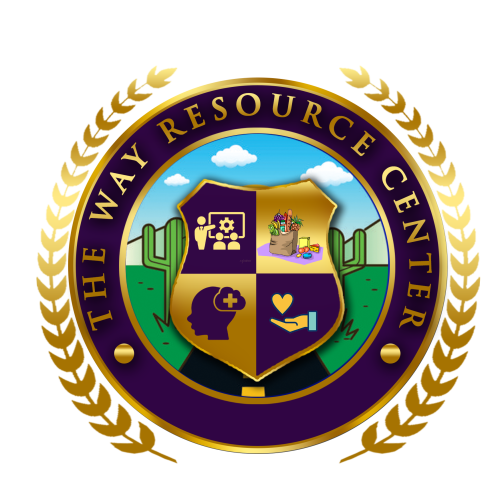GENERAL MENTAL HEALTH
MENTORSHIP PROGRAM
- Home
- gmhmp
ABOUT THE PROGRAM
We offer a wide range of Mental Health services in San Bernardino County to individuals to help manage their symptoms and teach coping skills, life skills and social skills to help manage the unpredictability of life to live a better life. Implement social- emotional and behavioral strategies and intervention programs for identified participants. For the purpose of improving student outcomes due to social-emotional and behavioral challenges. The Well-being of each individual is of the utmost importance. We want to help improve each individual’s quality of life. Our team of Mental Health professionals will aid in meeting the unique needs of each individual.


QUALIFICATIONS AND SEVERITY LEVEL

Low or Moderate to High Risk Individuals
These are the individuals with a potential risk, having behavioral issues at their respective educational institution, home or the community at large.

Potential of Hospitalization
We further cater to individuals that may lead to a potential of hospitalization, incarceration, and school suspension or expulsion.

Unable to keep up
These include the individuals who are unable to maintain progress at school and/or work, or stay in workplaces or school with the ages 13-18 Junior High & High School.
PROGRAM DURATION
The program is projected to be 3-6 months, when the participants meet their goals and show consistent progress and they maintain their progress they may graduate from our program. Participants may graduate before 6 months depending on progress and if the participant met their goals.
If participants have not met their goals within the 6 months, they may be reevaluated and if they would like to extend their stay in our program, the extension will be based on a case-to-case basis. We will need to evaluate if they are the best fit for the program, if it’s not, after 6 months we can refer them out to another agency (we have a network of other agencies that work with us). Our highest priority is to provide the best services to our participants and to give the best resources based on their needs.
If participants do not meet the requirements to continue our program (ex. They do not want to do the work to meet their goals or practice the coping skills and have not made any progress) they will be given a list of resources of other programs. If participants decide to take a break from counseling, they will be allowed back into the program but must wait at least 3 months. At this time, they may re-enroll into the program but will need to begin the process again and may not use previous information from their initial intake due to a likelihood that participants may be looking at working on new goals or may not be struggling with previous goals.
TIRATION: REDUCING SERVICES
Titration will occur once the participant has successfully made progress on their goals (we are not expecting perfection) which will be reevaluated every two weeks. The goals will be reviewed every two weeks to ensure there is progress and participants and caregivers are doing their part in implementing the coping skills and interventions taught in sessions. Severe goals such as suicidal ideations/ homicidal ideations etc. will be discussed in every meeting due to the high-risk nature of the goal.
- Once participants have successfully maintained their goals and have made significant progress at the 3-month mark titration will be discussed and it will be decided to reduce services, this will allow for participants more freedom and will be able to see if they are able to maintain their goals with less services.
- Our program is 6 months and nearing the 6 months we will slowly be reducing services to 1x/week and then 2x/month, this will be based on participants ability to maintain progress.
- Caregivers and participants will be fully a part of this decision.
- If we reduce services and participants’ behaviors increase, then we will determine it is not time to reduce services just yet and we will increase services again to what it was before the decrease occurred. Participants must show they are able to maintain their progress to determine the change in the frequency of services.
INITIAL CONTACT & SERVICES OFFERED
Individual Initial contact will be met with information of our program (WRC GMHMP) and will be asked general questions to share information and the requirements needed to be enrolled in the program as well as fill out an initial intake form to collect important information.
1. Ages 13-18 (Jr. High & High School aged)
2. Mental Health Need and/or Behavioral Issues at Home, School or Community
3. Participants do not have to be diagnosed in the program, parents are able to practice preventions/early intrervention with participants and enroll them if they can foresee participants can potentially struggle with an issue (mental or behavioral).
SERVICE LOCATION
Serving the High Desert Areas, such as Victorville, Hesperia, Apple Valley, and Adelanto, individuals in these areas are able to enroll in our program and attend in our local area where services are offered.
1. Participants will be able to attend our groups and or meet our Mental Health professionals at our offices.
2. Participants will be informed of the location that the services will be provided upon completion of initial intake.
GOALS
Every participant will identify goals they want to address (for ex: better grades, anger outbursts, anxious episodes, social-emotional challenges, behavioral challenges) and participant will be responsible along with the parent/caregiver to help participants actively work on the interventions and tools given to work on these goals in order to help participants meet goals.

Goal-Oriented Participant Plan
Goals will be agreed upon consultation, these goals can also be determined on the basis of need for the participant. A plan will be developed to address the goals of the participant. And if the participants meet goals rapidly, they will be able to add a new goal if desired.

Targeted Goals for Personal Growth
Goal examples include reducing anger management, anger outbursts, physical aggression, destructive behaviors, suicidal ideations and gestures, homicidal ideations and gestures, increase task completion, following adult directives, completion of school work, communication skills, eating disorder and or prevention of eating disorder, stress management, self-esteem and self-confidence insecurities, maintaining relationships, social skills, depressive symptoms, low daily motivation, anxiety, anxious tendencies, post psychiatric hospital support, grief management, post trauma support, family crisis support, childhood PTSD, learn grounding techniques, mindfulness, manage emotions appropriately, utilize coping skills.

Bi-Weekly Goal Review & Follow-up
Goals will be checked biweekly (but will be worked on in each appointment), this will be an important step where caregiver, participant and the Mental health worker will review goals in order to determine which goals participant has to work on and which one’s participant has made progress on. It will be important to keep track to ensure we can identify any roadblocks if the participant has not made progress. Follow up in 12 weeks to review progress.
Bi-weekly meetings
Participant and Family team meeting
This meeting will be scheduled at a normal individual session every two weeks. In this meeting we want caregivers to be an active participant in, to share whether the participant has made progress or if the participants behaviors have increased or remained the same. This meeting is important because we want to make sure caregivers are actively participating in their child treatment and not just dropping off their child at our offices and not knowing all the interventions and coping skills their child is learning. This is the time for the caregiver to ask any questions. The format of the meeting would be as followed:
- Caregivers will share what they are proud of share any progress they have noticed in participant
- Any concerns/questions will be addressed
- Participant will share with caregiver the coping skills and interventions they have learned as well as the purpose for them
- Participant will share what coping skill they will be using/practicing the next two weeks that they learned in sessions and Caregiver will also share how they can help their child to meet their goals and how they will prompt client to use their coping skills and or implement rewards systems, boundaries, chores chart, communication skills, consequences etc.
- The last thing that will occur will be scheduling the next PFTM
FAQs
During our program each participant will get a coping skill box depending on what the need is and their goals. There will be a budget for each participant and we will be able to provide something within that budget.
- For example, the budget is $20 and the participant likes to draw, we will be able to provide a drawing kit with a book and markers etc.
- Client does not need to bring any material to appointments unless there is a project, they are working with their mental health provider which will be discussed prior to appointments, there will be materials provided by our agency
- Parents are welcome to add any other coping skills to the coping skills box out of their own account and we encourage participants and parents to communicate what coping skills participants will like to try and work on.
Frequency of the services of our program will be based upon the severity and need of each individual. Frequency will be agreed upon with caregiver and participant at the consultation:
- If a participant is suicidal 3 or more times a week will be needed
- If a participant needs aid in focus at school 2 or more times per week will be needed etc.
- Everything will be on an individual need basis and will vary on each case.
There will be a survey and testimonials for participants and caregivers at the end of services to learn their thoughts on our program and what they enjoyed the most as well as what we can improve on.
Our goal is to improve in any area that needs growth, with collecting information either anonymous or not, this step will be important for our organization to add or change to improve our organization. This will also be a time where our participants and caregivers can show their appreciation for what worked for them while in the program.
Feedback may be collected and added to the website to share testimonials to share the positive experiences in our program
FAQs
Commitment is a vital part of our program, upon agreeing to the services both caregiver and client will sign to ensure the commitment is recorded. If there are missed sessions or appointments there needs to be communication with us, we understand life happens and that is permissible. However, if there is a pattern of canceled appointments and or no shows then there will be an attendance contract set in place where if there are 2 or more canceled/no shows appointments within a week then the services will be terminated as there may be a waitlist for others to enter our program. We want to ensure that our program will benefit those who are committed and maybe they can enroll when they are ready. This may also motivate commitment to take advantage of the help that is available to the participants.
Anyone who can identify that there is a need in participants life can refer to our program. This includes: School personnel (teachers, principals etc.), Counselors, Parents and family members, and Participants themselves can decide to enroll in our program, it is encouraged to have caregivers participate but if that is not possible it will not hinder the participant from enrolling.
Caregivers and participants will be given the resources, emergency numbers etc. so that they will be able to advocate for themselves and have what they need after graduating our program in case a situation arises that they will need support.
Participants are able to be re enrolled in our program, however they must go through the process again.
- Meeting with Mentor/Mental Health Professional for initial intake
- Meeting the required frequency and visits agreed upon
- Working on goals (practicing and using coping skills) & discussing any homework given
- Bi-weekly meeting with caregiver and team to check in on progress
- Services will reduce at 3 months if it’s appropriate
- Maintain progress
- Graduating our program
OUR WHY
Mental health is predominately rampant in our youth and if not taken care of as soon as possible and at the onset of the illness it can affect our youth in every area of their lives. Our goal is to see every youth thrive and become an important part of our society and contribute their skills and knowledge in every area of their lives including home life, in our society and professionally. Improve participant outcomes due to challenges that are impacting their lives. Provide positive behavior management, implementation of strategies and plans, alternative means of correction/suspensions. We strive to provide the resources and tools for participants and their families to thrive and empower them even after graduating our program.




